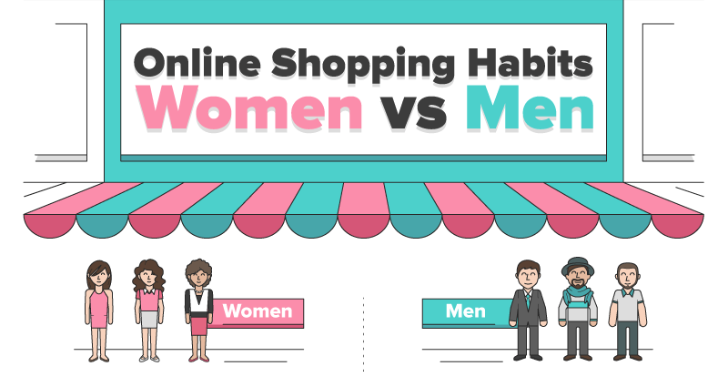Each morning we wake up to about a hundred new online startups. Some make headlines (and eventually get bought out for $19 Billion) while others potter about for a while before dying an untimely death.
In fact, a study carried out by Shikhar Ghosh, Senior Lecturer at Harvard Business School, found that of the over 2000 startup businesses the team studied, nearly 75% ended in failure.
With the numbers piled up against you, the last thing you want is for your dream project to become yet another dire statistic.
Avoid the dangers of hellfire by simply never committing these 7 deadly sins that startup businesses tend to make.
No concept testing
You love the business idea. Your Mom thinks the idea is genius. You’re all set to make millions, right? Wrong. An idea that seems brilliant to you may not seem equally exciting to your potential customers. They may not see value in your offering, they may find your offering exactly the same as hundreds of me-too competitors, even worse; they may think that your product/service fulfills no real need at all.
All of these insights only come when you put your personal biases aside and actually test out your business concept with your target audience. You can engage professional consultants to evaluate your concept or go it on your own with free and easy to use services like SurveyMonkey and Qualtrics.
Endless fine-tuning
Then there are folks at the other end of the spectrum. In an attempt to prevent failure at all costs, they feed into their ‘tinkering’ OCDs. Tinkerers are people who keep making incremental improvements to their product/service and hold back their product launches until they are completely satisfied. The problem is, they’re never completely satisfied.
Don’t succumb to this trap of pseudo perfectionism. Set a clear launch date for your business and get going once you’re sure that you have most of your bases covered. That last little flourish on your Careers section can wait till after the launch.
Stretching yourself too thin
A startup is like a newborn baby – you need to feed it, change it, and handle its moods round the clock. While most new Moms can depend on Daddy taking over baby duty, every now and then, many startup founders try to be Mommy, Daddy, Granny, and Gramps all rolled into one.
According to Mashable and Harvard Business School, a large chunk (about 39%) of all startup businesses has just one founder.
With the number of tasks that a business requires, delegation needs to be your mantra. Retain control over the most important aspects of the business, but stop sweating the smaller stuff. Bring in a partner, an efficient team, or even an outsourced agency to ensure that you don’t get squashed under the burden of single-handedly running a business.
Being stuck with yesterday’s technology
Consider this. Nielsen’s Digital Consumer Report 2014 says 67% of US consumers own a smartphone. They spend over 34 hours each month browsing the web or fiddling around with apps on their mobile devices. Is your website mobile-ready?
Or this. Amazon is now exploring the use of unmanned drones to speed up their delivery cycles. Small businesses can now integrate their in-store sales with their online sales using a web-based POS such as Shopify’s. How do you plan to manage your distribution and sales?
Or even this. According to a study by Epsilon, triggered emails have open rates that are 4 times higher than normal newsletters. Do you send out triggered emails? Do you even track customer activity on your website to be able to send out triggered emails?
These are just a handful of the many, many technological advances that you need to keep abreast of to make sure your business does not live in the Dark Ages.
Not listening to your customers
Did you know Avon – the cosmetics giant – started life as a door to door bookseller? The founder of Avon, David McConnell hit upon the idea of giving small perfumes as gifts to his customers to encourage the sale of his books. To his complete surprise, he found that customers preferred the free perfumes over the books, and an empire was born. Books went out the window and Avon embarked on its journey of making women prettier around the world.
As we see from this little fable, customers often give you insights on your business that can change the trajectory of your business forever. With social media, consumer forums, even good old email, businesses can speak to their customers one-on-one. Keep your ear on the ground for customer feedback and apply the insights you glean from your customer interactions into improving your existing business.
Irate customers can spell trouble for your online reputation if not addressed well in time. Who knows this better than United Airlines! Dave Carroll, a musician flew with United and on arrival found that his $3500 guitar was badly damaged in transit. Carroll chased United Airlines for 9 months to get some redressal for his loss, but to no avail. So he decided to write a song about his terrible experience with United Airlines and posted the video below on YouTube.
The effect? United’s stock price fell 10% in one day, leading to over $180 million in shareholder losses. Carroll and his song got featured on Time Magazine, CNBC, and even went on to publish his own book about the incident. His YouTube video has over 13.8 million views today!
Don’t be the next United Airlines. Listen to that pissed off customer and fix his problem before he creates a bigger one for you.
Putting all eggs in one basket
High stakes games give you an adrenaline rush, make you feel like a reckless rebel, and so on. However, playing high stakes with your business is foolishness best confined to the roulette table.
Depending on just one revenue source for your business is a common way many businesses head down the road to nowhere. Yes, you have your big client who will NEVER fail and can ALWAYS be depended on. Or you have a product that is a smash hit and you can now breathe easy. But what if the worst happens and your sole client vanishes or your consumers tire of your hit product?
It always pays to have a Plan B. This means having a dependable set of clients, instead of just one mega client. It includes working on having a second line up of products to back up your star offering or having alternate distribution channels if your existing channels go bust or even having a backup supplier for your key raw materials so that you are not left high and dry one fine day.
No focus on marketing
There, I said it. Ridiculous as it sounds, we all know passionate business owners who are so enamored with their own product that they believe their awesome product will just sell by itself, by virtue of its sheer awesomeness. While this may have fine in the days of the Ford Model T, it stopped being true at least 60 years ago.
Startup businesses face a fundamental challenge of making tough choices. Should you use your limited resources to focus on building a mind-blowing product and trusting that people will come or should you spend some money on building a good product and the rest on marketing that brings customers to you? If your product is the next Sriracha Hot Sauce, then you can probably stick with option 1. All other mere mortals DO have to make their presence felt to the customer in one way or another.
As a startup, you obviously are tight on cash. But marketing is one of those necessities of a business that one cannot wish away. There is still a lot that you can achieve with small or no budgets, armed with just the determination to go out there and promote your business to your target audience. Leverage blog posts, social media platforms, email marketing even word of mouth to create awareness of your brand and drive customers to you.











6 comments
Comments are closed.